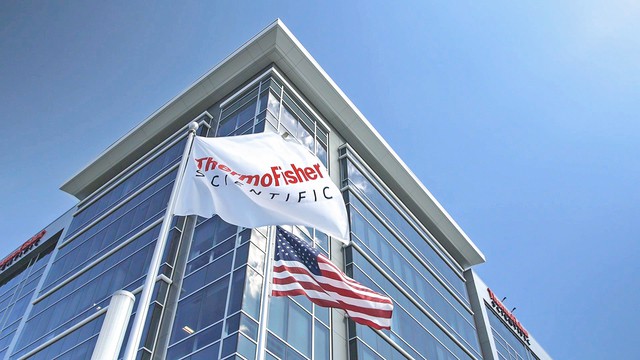Earlier this week at the J.P. Morgan Healthcare Conference, Thermo Fisher Scientific CEO Marc Casper said 2021 is going to be a year that sees the company quickly accelerate its long-term plans, including a full pipeline of M&A deals. He wasn’t kidding.
Buoyed by revenues from COVID-19 testing over the past year, Thermo Fisher announced that it has now acquired Henogen, Novasep’s viral vector manufacturing division, for about €725 million or $878.2 million in cash.
Henogen provides contract manufacturing services from formulation to packaging across two locations in Belgium, and maintains over 75,000 square feet of production space and about 400 employees—a recently increased workforce, as the company gears up to support COVID-19 vaccine production.
“Novasep’s viral vector business is an excellent strategic fit as Thermo Fisher continues to expand its capabilities for cell and gene vaccines and therapies globally,” said Michel Lagarde, executive vice president of Thermo Fisher.
“The addition of their manufacturing capabilities in Europe complements our four development and manufacturing sites in North America,” Lagarde said. “In addition, they bring an incredibly talented team with more than two decades of experience across a broad range of viral vectors.”
The division will be absorbed into Thermo Fisher’s pharma services business, under its laboratory products segment. Henogen’s 2020 revenue is estimated at about $95 million—however, last November, Novasep signed a multi-year deal with AstraZeneca to support the large-scale production of adenovirus vector for the biopharma’s coronavirus vaccine candidate.
Earlier this month, Novasep also sold off its chromatography equipment division to Sartorius, which it described as a disposal aligned with its new core strategy. “This deal marks one of the first steps in our Rise-2 strategic program to focus the group towards our core business,” Novasep President and CEO Michel Spagnol said at the time.
For at least two years, Novasep and Sartorius have jointly worked to develop a membrane-based, low-pressure chromatography system for processing larger molecules more productively, which the companies expect to be launched soon.
Thermo Fisher, meanwhile, has seen its COVID-19 test kit manufacturing capacity increase over the past year to 20 million per week, while also supporting at least 250 COVID-19-related research projects.
More recently, the company expanded its sequencing program to help support research into emerging strains of the virus, including the more contagious B.1.1.7 variant first identified in the U.K. It plans to supply additional sequencers for research use at a subsidized price to international surveillance teams.

